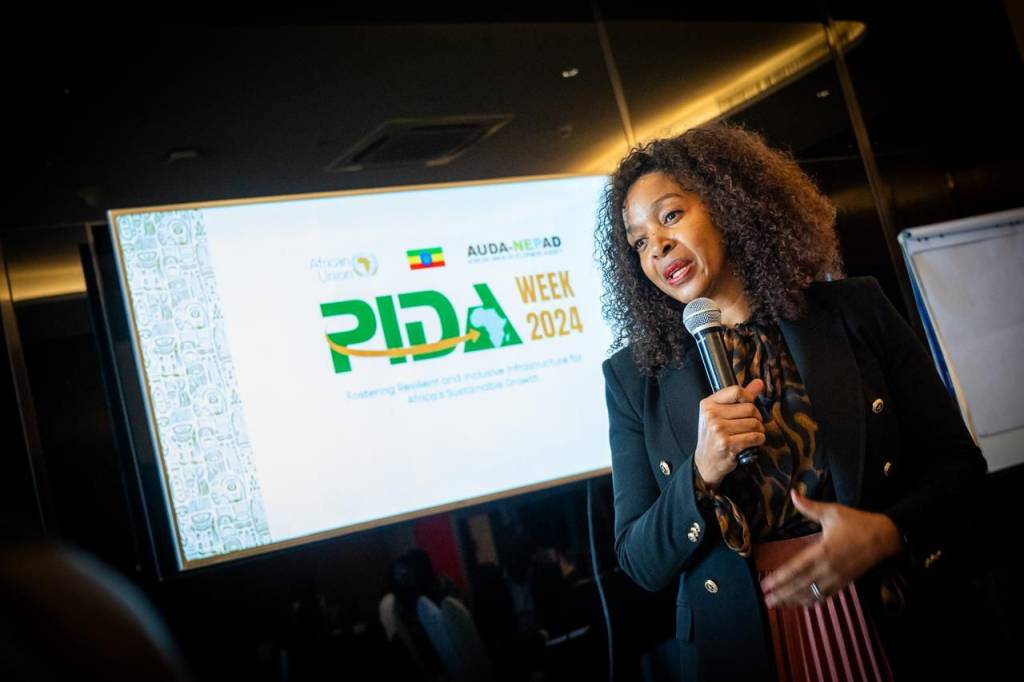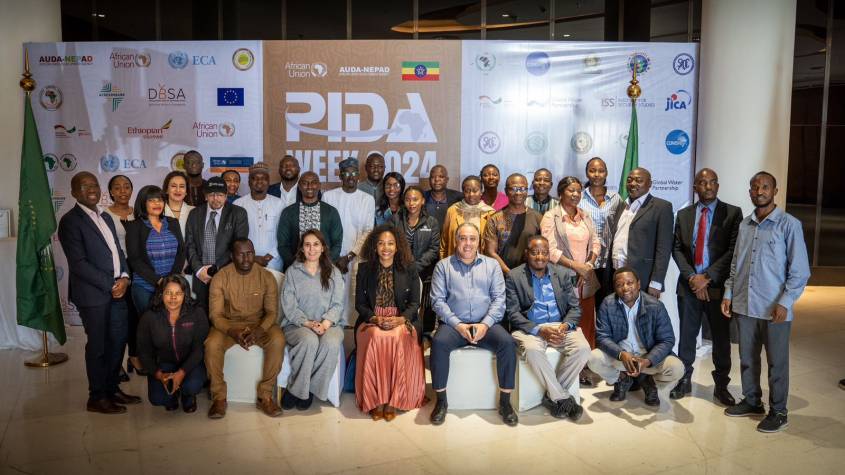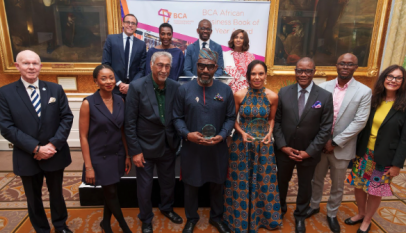8th PIDA Week Begins with Journalists’ Sensitization in Addis Ababa
Ahead of the 8th Programme for Infrastructure Development in Africa (PIDA) Week, select African journalists under the aegis of the PIDA Journalists’ Network gathered Sunday in Addis Ababa, Ethiopia, for a media sensitization workshop.

The workshop was organized by the African Union Development Agency (AUDA-NEPAD) to sensitize the participants about progress in PIDA’s implementation and allow them the opportunity to engage with experts on Africa’s infrastructure priorities so as to effectively inform the public about the continent’s strides in the area of infrastructural development.
Zipporah Maubane, Head of Communications at AUDA-NEPAD, emphasized the crucial role of journalists in highlighting the importance of investment in infrastructure in Africa. “Investments in energy, transport, water, and Information and Communication Technology (ICT) not only address immediate needs but also position Africa for long-term development,” Maubane said. “PIDA projects are key to promoting sustainable economic growth, regional integration, and social development across Africa.”
Maubane described infrastructure development as a driver of progress and a key enabler of sustainable and inclusive economic growth. “While inadequate infrastructure can be a significant obstacle to Africa’s long-term growth, it also represents a significant opportunity, as infrastructure development boosts and supports intra-Africa trade.”
In this vein, Maubane said journalists have the power to shape the narrative around infrastructure development in Africa. “Through their reporting, they can hold leaders accountable, highlight successes and challenges, and amplify the voices of communities most impacted by infrastructure development.”
Ibrah Wahabou, Head of Infrastructure and Transport at AUDA-NEPAD said PIDA stands out from previous regional infrastructure integration initiatives due to its shared vision of regional integration and long-term goals. “PIDA consolidates continental infrastructure initiatives and fills gaps by providing practical and affordable priority projects aligned with Africa’s long-term development goals.”
Wahabou noted that Africa has immense potential for infrastructure development, driven by a huge market of 2.5 billion consumers (by 2050), and the largest free trade area in the world i.e. the African Continental Free Trade Area (AfCFTA).
The 2024 PIDA week, themed “Fostering Resilient and Inclusive Infrastructure for Africa’s Sustainable Growth,” runs from November 25-29 in Addis Ababa, Ethiopia. PIDA, a joint initiative of the African Union Commission (AUC) and the African Development Agency (AUDA-NEPAD), aims to address regional and intra-regional connectivity challenges in Africa through infrastructure development.
Established by the African Union Commission (AUC) in collaboration with the African Development Bank (AfDB) and other stakeholders, PIDA serves as a blueprint for advancing regional and continental infrastructure development across four sectors: energy, transport, transboundary water, and ICT.
As Africa’s population is projected to reach 1.6 billion by 2030, the need for sustainable infrastructure has never been more pressing. Journalists are playing a critical role in shaping the future of infrastructure in Africa, and their reporting will continue to drive action and inspire change.

















